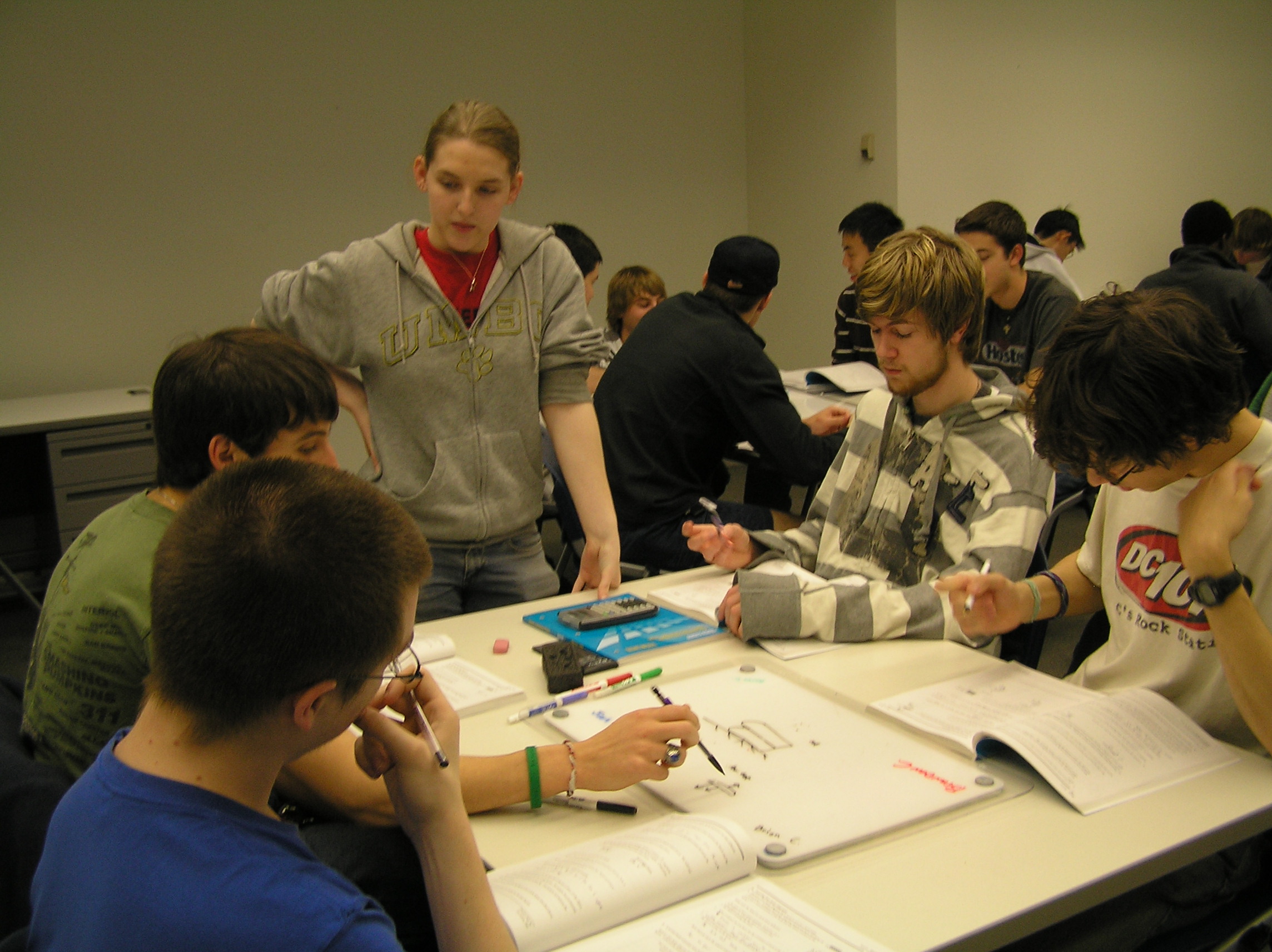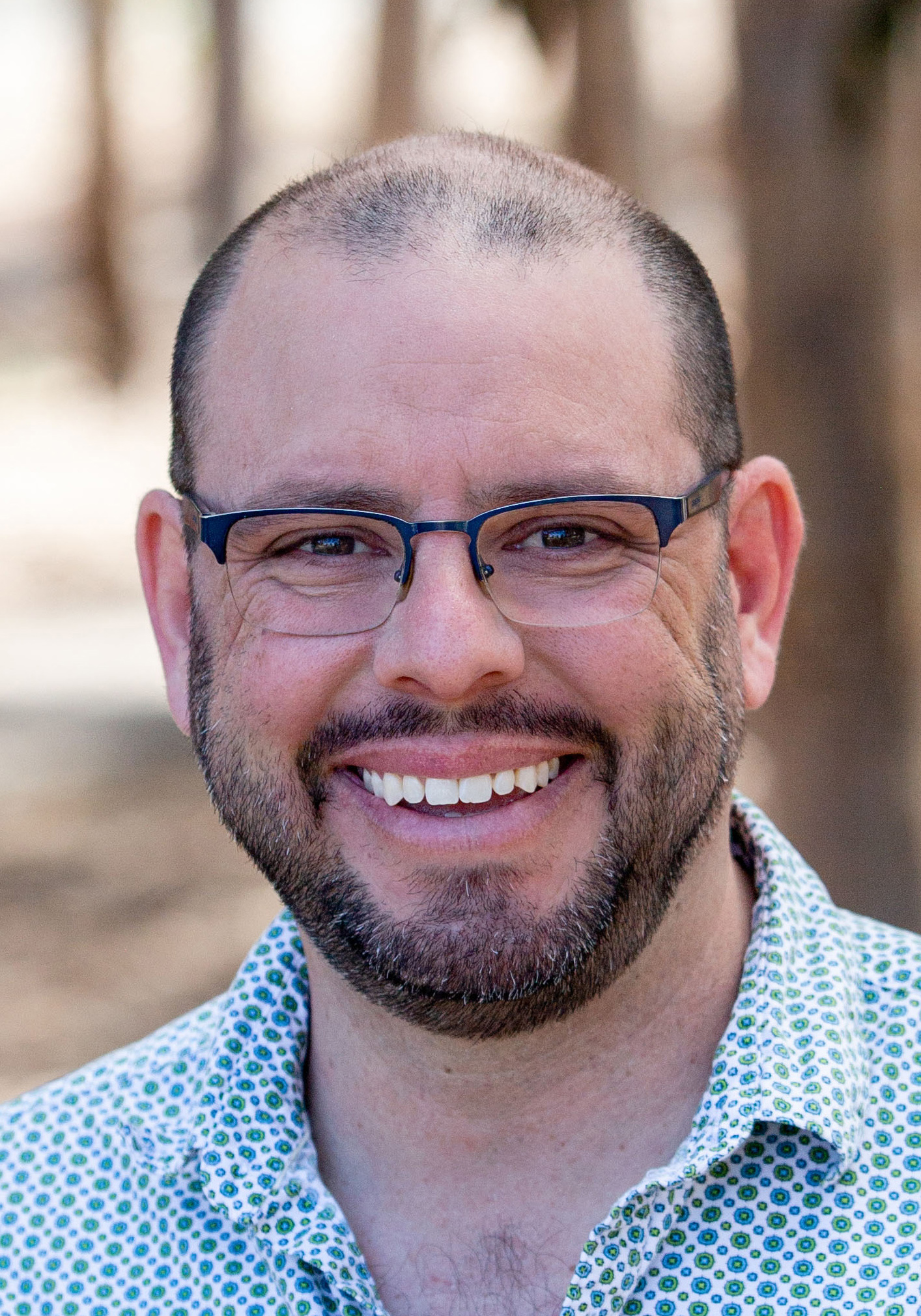
What difficulties do students learning physics typically encounter? What new methods and curricular materials are most helpful? What goals should we have for our students? In short, how can we better prepare future physical scientists, life scientists, engineers and physics teachers? Answers are beginning to emerge owing to the efforts of physicists whose scholarship lies in physics education research and development.
Members of the UMBC Department of Physics contribute to this effort in several ways. As a member of the American Physical Society-sponsored Physics Teacher Education Coalition (PTEC), we are part of a national effort to improve the education of future physics teachers. Our BA in Physics Education degree option serves those students who wish to contribute their talents to this urgent need. Undergraduate physics majors – BA or BS – with solid academic performance and an interest in teaching are recruited to serve as learning assistants (LAs). LAs receive ongoing training and a modest stipend to coach small groups of introductory physics students in active learning-based discussion sections and laboratories.
We have performed research designed to strengthen the transfer of knowledge and skills gained in students’ study of calculus to their study of physics, to uncover the link between students’ views about what it means to learn physics and their conceptual understanding, and to evaluate and improve active learning strategies. Building on the work of others, we have implemented proven reforms in the calculus-based introductory physics sequence. These include peer instruction, interactive lecture demonstrations, tutorials targeted at specific student difficulties, and practicing a systematic approach to solving real-world problems. Department members have given invited talks at national meetings of the American Association of Physics Teachers (AAPT), served on national advisory panels and received National Science Foundation grants to improve physics education.
Students excited by the challenge of tackling important questions in biology increasingly need to be comfortable with the concepts and tools of physics. To that end, we have created the Living Physics Project, part of the NIH-funded Interdisciplinary Quantitative Bioscience Program at UMBC. Guided by the National Research Council report Bio 2010: Transforming Undergraduate Education for Future Research Biologists, we are beginning a major reform of the algebra-based introductory physics sequence. Goals for the reformed sequence include (1) making contact with bioscience topics at the organismic, cellular, and molecular levels, (2) improving student understanding of modern biological techniques, and (3) enhancing student development of transferable skills such as problem solving and mathematical modeling.
Faculty with Research Interests in Physics Education:
 Dr. Eric Anderson Bio |
 Dr. Lili Cui Bio |
 Dr. Daniel Gonzales Bio |
 Dr. Cody Goolsby-Cole Bio |